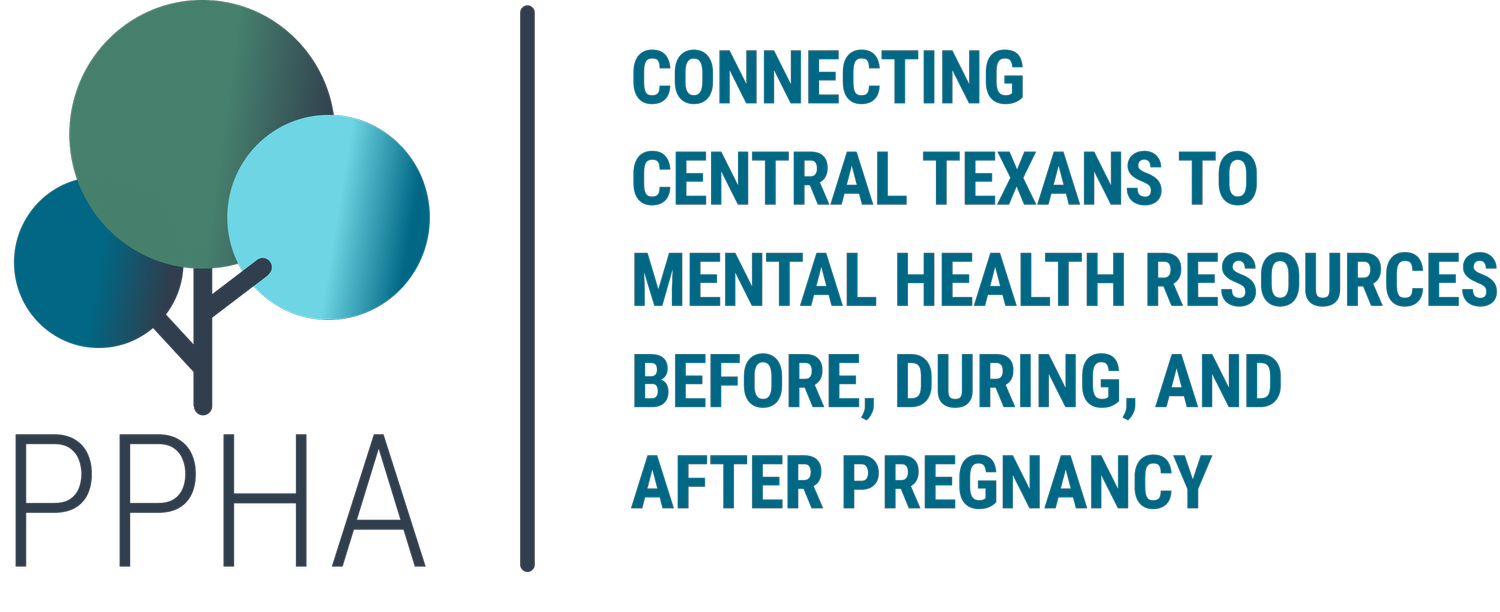PERINATAL MOOD DISORDERS INFORMATION
Postpartum Depression (PPD)
Postpartum Depression, or PPD, can be confusing and frightening. You are not alone, there is help. Here are a few things you should know:
PPD is the most common complication of childbirth
PPD can be more than just depression. It can include anxiety, obsessive-compulsiveness, or psychosis.
You did nothing wrong. There is nothing wrong with you as a person. You are not a bad parent.
These feelings can be due to several factors including hormonal changes, biological reasons, stress, or a history of mental health illness.
Symptoms of PPD could include:
Anger or irritability
Lack of interest in baby
Eating too much or too little
Sleeping too much or too little
Crying and sadness
Feeling guilty, shame, or hopelessness
Loss of interest or pleasure in things you once enjoyed
Possible thoughts of harming yourself or the baby
With treatment, PPD can last a few months to a year. Without treatment, it can last up to 3-4 years. If you feel you are experiencing PPD or something just doesn’t feel right, it’s important to reach out and get help. Failure to treat PPD can have a significant impact on the development of children.
Postpartum Anxiety (PPA)
Postpartum Anxiety, or PPA, can be confusing and frightening. You are not alone, there is help. Here are a few things you should know:
About 10% of birthing parents experience significant anxiety after childbirth. Sometimes they experience anxiety alone, and sometimes it’s accompanied by depression.
PPA may take on other forms as well, such as panic attacks and Obsessive-Compulsive Disorder (OCD). Panic attacks may come in waves. They may be frightening, but they cannot hurt you.
Symptoms of PPA could include:
Constant worry
A feeling that something bad is going to happen
Racing thoughts
Eating too much or too little
Sleeping too much or too little
Inability to sit still
Dizziness, hot flashes, nausea
Panic attacks:
Shortness of breath (feeling like you can’t breathe well)
Chest pain
Claustrophobia
Dizziness
Heart palpitations (feeling like your heart is skipping beats or beating too fast)
Numbness and tingling
Symptoms for Postpartum OCD (a form of anxiety) may include:
Obsessions - persistent, repetitive thoughts or mental images about the baby. (Also called Intrusive Thoughts). These thoughts are upsetting to the parent. They may include thoughts of harming the baby or the baby being hurt.
A sense of horror about these intrusive thoughts.
Fear of being left alone with the baby
Hypervigilance about protecting the baby
Compulsions - repeated behaviors, usually done in order to avoid “harm” or relieve anxiety caused by the intrusive thoughts. This may include excessive cleaning, checking, locking doors, counting things, organizing things, etc.
Post-Traumatic Stress Syndrome (PTSD)
Post-Traumatic Stress Disorder (PTSD) can occur when an individual experiences or witnesses a life-threatening event. Perinatal PTSD may be triggered by a traumatic or frightening birth, or if the parents or baby has a medical crisis after the birth. Postpartum PTSD is treatable with trauma-informed professional help. Trauma during birth can include:
Pain or injury during labor or delivery
Emergency during labor or delivery, C-section
Risk to baby and/or birthing person
Feelings of powerlessness, helplessness, poor communication and/or lack of support
Lack of multicultural competence or cultural awareness
Lack of consent or choices in birthing process
Perinatal/Postpartum PTSD may also occur if an individual experienced any trauma before labor and delivery. Previous traumas can be triggered during pregnancy, labor, delivery, and the postpartum period. Trauma before pregnancy/birth can include:
Child abuse, sexual trauma, intimate partner violence, race-based trauma, and discrimination
Medical complications, natural disasters, injury/illness
Previous birth trauma, pregnancy complications, infertility
Symptoms of Perinatal PTSD may vary among individuals. Both birthing and non-birthing parents can experience symptoms of perinatal PTSD. Symptoms of PTSD may include:
Intrusive memories of the traumatic experience
Flashbacks or nightmares
Avoidance of reminders of the event, such as people, places, or feelings
Persistent irritability, sleeplessness, hypervigilance or increased startle reflex
Anxiety and panic attacks
Feeling disconnected or a sense of unreality
Feelings of shame or guilt
